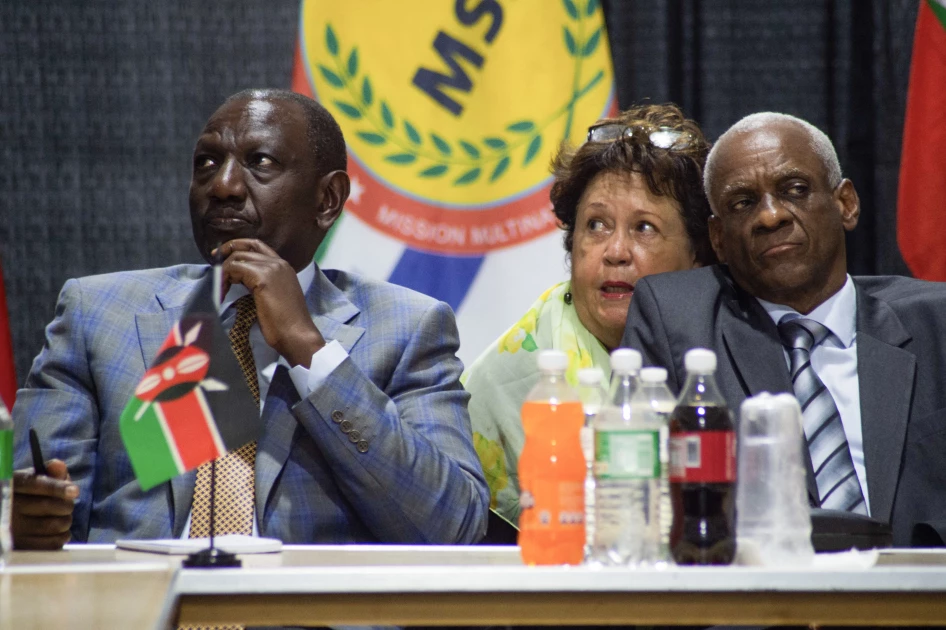Almost a month ago, during Haiti Prime Minister Garry Conille’s visit to Nairobi, President William Ruto made a public appeal for financial backing from the international community to sustain Kenya’s security deployment in Haiti, a mission extended by an additional year. This Kenya-led mission began in June, aiming to address gang violence across Port-au-Prince and its surrounding areas.
President Ruto, enthusiastic about Kenya’s role, highlighted the efforts and early achievements of the Kenyan police contingent in Haiti. Both Ruto and Prime Minister Conille stressed the importance of continued international support to fund the mission fully.
The Situation in Haiti
Haiti remains the poorest country in the Americas, with over 60% of the population living in poverty. The country has faced unrelenting challenges, including natural disasters and political instability, which have fueled rampant gang violence. Organized gangs, controlling significant parts of Port-au-Prince, have contributed to the deaths of over 3,600 people this year alone, including more than 100 children, according to UN reports. Additionally, more than half a million Haitians have been displaced internally.
Kenya’s Involvement: A Bold Move
In August 2023, while the U.S. presided over the UN Security Council, a resolution was passed allowing Kenyan police to lead a stabilization mission in Haiti. This was a significant commitment for Kenya, which had little prior experience with international peacekeeping missions outside Africa. Language barriers and the severity of gang violence posed immediate challenges for the Kenyan contingent, yet the commitment remained steadfast. Kenya has deployed 400 officers to Haiti, with an additional 600 planned once training is complete.
Complications from U.S. Politics
The mission, however, faces financial obstacles. Earlier this year, U.S. Republicans blocked funds designated for the mission, requiring Secretary of State Antony Blinken to override the decision. The Biden administration was a vocal supporter, pledging $300 million to support the mission. Yet with Donald Trump’s victory in the recent U.S. election, the future of this funding remains unclear. Trump’s "America First" stance and previous rhetoric regarding Haiti and other countries indicate a likelihood of reduced U.S. involvement.
Outgoing President Biden’s administration was the primary advocate for the mission, and without its support, there are fears that the Haitian mission’s stability may falter. President Ruto has expressed concern about the future of this mission, recognizing that current funds may last only until early next year.
Potential Solutions and the Role of the UN
President Ruto is now in a challenging position, as ongoing funding cuts threaten to destabilize Kenya’s efforts in Haiti. Some international observers are calling for a transition from the current multinational force to a full UN peacekeeping operation, a shift requested by Haiti’s Transitional Presidential Council. This change would provide a consistent funding stream and a broader international commitment, helping ensure the mission’s effectiveness.
UN Secretary-General António Guterres, who previously hesitated on further peacekeeping in Haiti, may need to revisit his stance. Despite past controversies surrounding UN peacekeepers in Haiti, including incidents of cholera outbreaks and alleged misconduct, the intensifying violence has led many Haitians to reconsider the role of UN intervention.
For Kenya’s peacekeeping contingent, the coming months are crucial. If the mission does transition to the UN, it would bring much-needed support, allowing Kenyan forces to continue their work in stabilizing Haiti’s volatile regions. For now, President Ruto and Kenya’s leadership are keenly watching the developments in Washington, hopeful for continued support or a viable exit strategy if the mission faces further setbacks.

